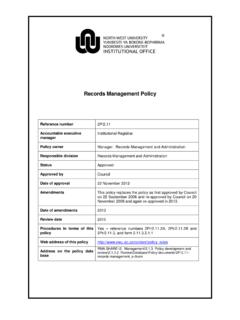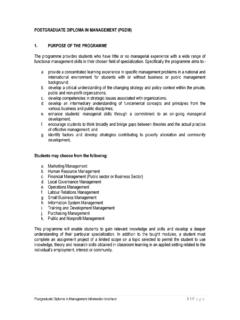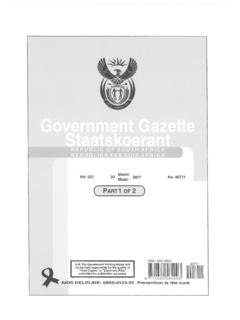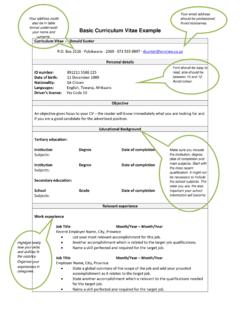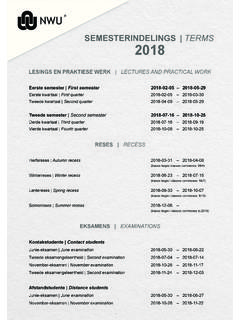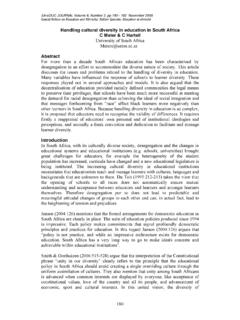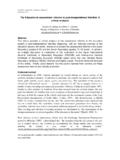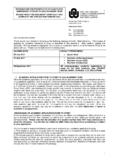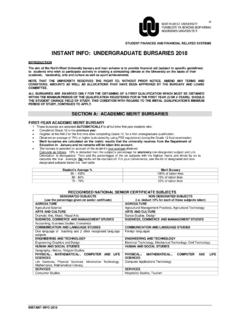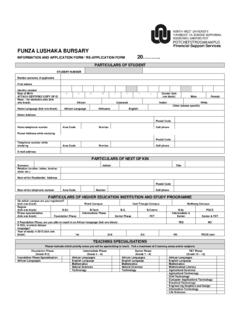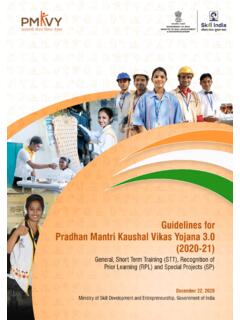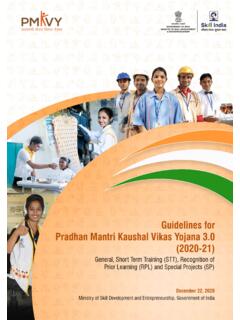Transcription of GENERAL ACADEMIC RULES
1 GENERAL ACADEMIC RULES Reference Number 7P Accountable executive manager Registrar policy Owner Registrar Responsible division Registrar Student ACADEMIC Lifecycle Administration Status First approval on 21 September 2017 The following RULES were revised: March 2018 A-Rule March 2019 A-Rule June 2019 A- RULES , and March 2020 A- RULES , , , , , , and March 2020 Glossary and abbreviations Approved by Council Date of approval 21 September 2017 with revisions in March 2020 Review date 2022 GENERAL ACADEMIC RULES of the North-West University 1 Registrar GENERAL ACADEMIC RULES OF THE NORTH-WEST UNIVERSITY Preamble WHEREAS the Senate is responsible for the regulation of all teaching, learning and research functions, as well as for the ACADEMIC support functions of the university and for the determination of policy and RULES concerning all ACADEMIC matters; and AFTER consultation with the relevant ACADEMIC and support structures of the university regarding the appropriate manner in which students' admission and registration, the course of their studies, assessment and related matters should be regulated; and TAKING INTO CONSIDERATION the provisions of the Higher Education Act (101 of 1997), the Higher Education Qualifications Sub-Framework (HEQSF) (CHE; 2014) and the Statute of the North-West University (NWU); SENATE MAKES THESE RULES for the effective and orderly execution of the ACADEMIC processes of the university.
2 Following approval by Council at its meeting of 21 September 2017, these RULES become effective from 1 January 2018. 1 GENERAL provisions Application and interpretation of the GENERAL ACADEMIC RULES These RULES must be read with and applied subject to the Higher Education Act (101 of 1997), the Higher Education Qualifications Sub-framework (HEQSF) and the Statute of the North-West University, and in conjunction with policies as determined by Senate and Council, such as, but not limited to, the Admissions policy and all other related policies for the governance, management and administration of teaching, learning and research, as well as the schedule of payable fees as determined annually by the university. These RULES apply to all Senate-approved ACADEMIC programmes that lead to formal qualifications listed in the Programme and Qualification Mix (PQM) of the university, regardless of the mode of delivery.
3 Where applicable, the RULES distinguish between provisions that apply to programmes delivered by means of the contact and distance modes of delivery (referred to in these RULES as contact and distance qualifications and programmes). These RULES prevail over faculty RULES . The Glossary of Teaching- learning Related Concepts and Designations contained in the Appendix determines the interpretation and application of these RULES . Where these RULES require or allow the exercise of a discretion, the senate may review and substitute a decision taken in the exercise of such discretion. Where functions and decision-making authority are entrusted by these RULES to persons or structures, senate or a duly mandated sub-committee of senate may at any time resolve to require the person or structure concerned to report on the performance of the function concerned or the making of the decision, and senate may, within the limits of reasonableness, taking into account the implications for those affected thereby, replace or revoke the act or decision concerned.
4 All decisions made by executive deans or other persons in terms of these RULES must be recorded appropriately by the responsible ACADEMIC or administrative unit. The executive dean may, in writing, delegate any power or function vested in him/her in terms of these RULES to any faculty sub-committee, the deputy dean, an ACADEMIC director or deputy director. Any person aggrieved by the exercise of such a delegated power or function may, within a reasonable time, request the executive dean to reconsider a decision made in terms of such delegated authority, GENERAL ACADEMIC RULES of the North-West University 2 and the executive dean may confirm, replace or amend such a decision or refer it back to the person or committee to whom decision-making authority was delegated for reconsideration. A person who demonstrates the intention to be associated with the university, by applying for admission, or being admitted to the university for formal study, is subject to these RULES .
5 The structure of qualifications The HEQSF provides the basis and minimum requirements for the design, structure and quality assurance of all qualification types offered by the university. Only those qualifications that form part of the PQM of the university may be marketed, offered and conferred by the university. The internal qualification standards of the university are provided for in faculty RULES and published in faculty yearbooks to ensure compliance with the HEQSF. The senate may approve faculty RULES that allow for a maximum additional credit allocation of 20% more than the minimum required total credits for a qualification specified in the HEQSF. The additional credit allocation contemplated in rule may be exceeded in cases where it is required by a professional body competent to recognize or accredit a qualification. Amendments to the credit structure, module outcomes or curriculum outlay of a programme leading to a qualification are subject to approval by the Institutional Committee for ACADEMIC Standards (ICAS).
6 In cases where an approved qualification undergoes a major change to its purpose, outcomes, field of study, or modules, application must be made via ICAS for the external approval of such changes. Faculty RULES Every faculty board makes proposals to the senate for the adoption of faculty RULES with regard to the requirements for qualifications and programmes that are part of the PQM of the university and offered by the faculty concerned. In addition to matters provided for in these RULES , faculty RULES may, where appropriate, provide for arrangements that may be necessary for the accommodation of programme-specific requirements and faculty-specific procedures and structures. The minimum and maximum duration of study for a qualification, the composition of the curricula of programmes, and the credit structure of programmes leading to a qualification, are set out in the faculty RULES . Faculty RULES are published in the yearbook of the university pertaining to the faculty concerned.
7 Where faculty RULES are amended and approved by senate before the next version of the yearbook is published, reasonable steps must be taken to bring the amendments to the attention of students who are affected thereby. recognition as a student of the university To be recognised as a student of the university for the purposes of these RULES , a person must have been admitted to the university and must have been registered for a programme leading to the attainment of a qualification. In order to continue with studies at the university, a returning student who has been admitted and registered at the university must register annually in accordance with these RULES . Application, selection and admission to the university Application and admission A prospective student applies for admission to the university by completing the prescribed application form, either on paper or electronically, and submitting it to the North-West University Central Application Office according to the admissions procedure required by the faculty concerned, together with the required additional application documentation and proof of payment of applicable fees for application and selection.
8 The GENERAL requirements for admission to all formal contact and distance qualifications and related programmes offered by the university, as well as the provisions for conditional exemptions, are set out in the Admissions policy of the NWU as recommended by the Institutional Admissions GENERAL ACADEMIC RULES of the North-West University 3 Requirements Committee, adopted by Senate, and approved by Council ( ). Programme-specific additional admission requirements may be provided for in faculty RULES and no application for admission may be accepted unless the applicant complies with both the GENERAL admission requirements and faculty-specific requirements where applicable. Selection The university reserves the right to set selection criteria, in addition to the minimum admission requirements, and apply such criteria to admit or refuse admission to specific qualifications and programmes, taking into consideration the university s targets for the size (total number of students) and shape (fields of study and diversity profile) of the student population, and the capacity available to the university to offer the qualifications and programmes concerned.
9 The allocation of a number for identification purposes to an applicant who meets the minimum admission requirements does not constitute or create a right to be admitted to the university as a student. Admission and advanced standing on grounds of recognition of prior learning An executive dean may, by means of the recognition of prior learning (RPL) in accordance with the university s recognition of prior learning policy , grant a student who does not meet the minimum admission requirements admission to a programme of a qualification, or grant advanced standing to a student by exempting the student from the recognised modules required for the completion of a particular programme. Only proven informal or non-formal learning may be taken into consideration by means of RPL, the process of equivalence-setting between such learning and formal modules must be documented, and its outcome must be recorded on the official student record.
10 Where a student was granted exemption for one or more modules as a consequence of RPL, the remaining HEMIS credits required for the qualification must be obtained by completing the relevant programme. The maximum portion of a qualification from which a student may be exempted by means of RPL is fifty percent of the credits of the full qualification. Credit recognition and transfer Definition and application Credit recognition and transfer entails a documented process by means of which a student receives credit for specified prescribed modules or coursework components of a formal programme offered by the university, allowing the adjustment of the minimum study period for the completion of a programme offered by the university within the framework of RULES 2 to 5. Credit recognition and transfer may only be granted for credits obtained during studies towards a formal qualification, including credits obtained for modules taken for non-degree purposes.
